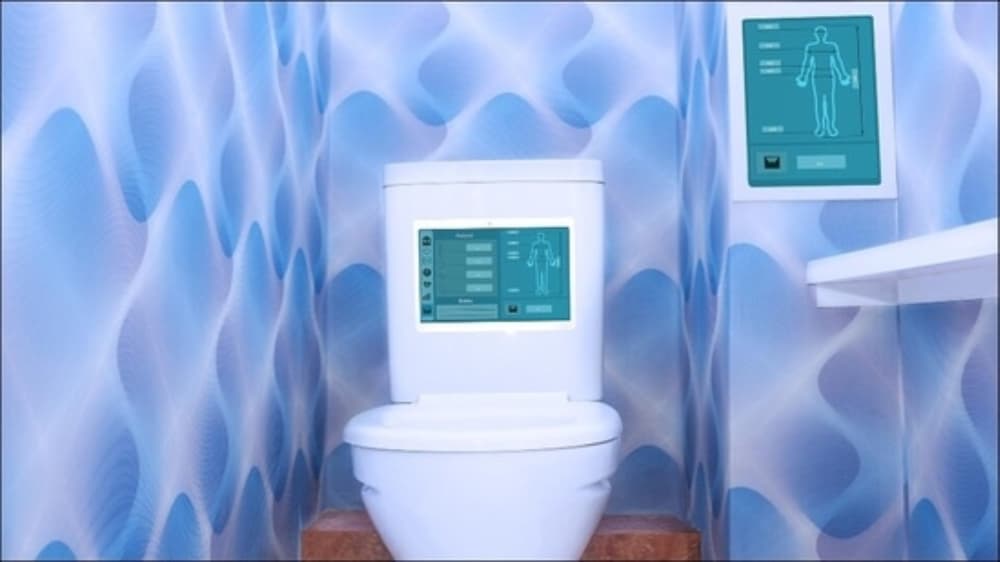Smart toilets are revolutionizing healthcare by analyzing urine and stool to detect early signs of diseases like diabetes, kidney issues, and colorectal cancer. Using sensors, AI, and real-time data sharing, these high-tech toilets offer non-invasive, daily health monitoring—bringing preventive care into the comfort of your home.
Smart Toilets for Health Monitoring: The Future of Disease Detection Starts in Your Bathroom
Written by Sumit Kaushik

No longer a status symbol, smart toilets are becoming powerful health tech devices that will be capable of detecting illness, monitoring chronic disease, and giving you immediate information on your wellbeing — all from what you flush down the toilet.
Assume your toilet had saved your life.
It's the future of healthcare, in which your bathroom morning routine is a glympse into your wellbeing.
What Are Smart Toilets?
Smart toilets are bathroom technologies that involve sensors, cameras, and artificial intelligence-based diagnostic capabilities that examine stool and urine to track a variety of health indicators. Smart toilets are able to detect abnormalities, track chronic illness, and even alert users or doctors if something is not quite right.
Unlike doctor visits or wearable health monitors, both of which require effort, smart toilets are non-intrusive and passive and offer up health data without placing one more thing on the user.
What are Smart Toilets and How Do They Work?
Smart toilets utilize a mix of:
- Optical cameras and sensors to gauge stool consistency and color (markers of disease in gastrointestinal health)
- Chemical strips or cartridges to test glucose, proteins, ketones, blood, and other analytes in urine
- Machine learning software to scan data and detect anomalies over time
- Connectivity like Wi-Fi or Bluetooth to send data to a healthcare provider or app
- State-of-the-art prototypes even include biometric authentication (yes, from your bum) to link personal data to the right person.
Health Conditions Smart Toilets Can Monitor
Smart toilets can detect and monitor various conditions, some of which are:
Urinary tract infection (UTIs)
Kidney disease
Diabetes (on the basis of glucose detection in urine)
Dehydration and electrolyte imbalance
Colorectal cancer (on the basis of detection of blood in stool)
Irritable Bowel Syndrome (IBS)
Digestive tract problems
Diet imbalances
Through sustained measurement of data, these toilets can detect disease precursors months or years in advance of when they become possible to detect in symptoms.
Benefits of Smart Toilets for Healthcare
✅ Early Disease Detection: Detection of likely issues prior to their worsening
✅ No-Invasive Monitoring: There is no need for blood sampling, nor laboratory testing
✅ Daily Monitoring: Better trend observation using precise data
✅ Better Chronic Illness Management: Patients are still in control of their health with instant feedback
✅ Telemedicine-supported Remote Patient Monitoring: Data can be relayed to physicians, and telemedicine is enabled
Startups and Real-World Innovations
Several research organizations and institutions are already working on this new technology:
- Stanford University's genius smart toilet technology utilizes AI to keep track of urological and gastrointestinal health.
- Toi Labs created a smart seat called TrueLoo for installation within elderly adult living communities to monitor stool patterns.
- Upscale toilet manufacturers Kohler and Toto are incorporating health sensors in their high-end toilet designs.
Challenges and Considerations
While promising, smart toilets are being hindered by a number of challenges:
Data Privacy and Security: Health data is personal and needs to be protected.
Accessibility and Cost: Smart toilets remain expensive and not mass-market.
Accuracy and Regulation: In medical use, it is necessary to have medical-grade precision.
User Acceptance: People will find it too intrusive or novel.
The Future: Toilets as Diagnostic Tools
In the near future, your toilet can be a valuable member of your health care team. Picture yourself being notified of a possible kidney problem before it becomes an emergency or hearing encouragement about your hydration and diet by simply doing your business.
With advancing health-tech, smart toilets can make diagnostics accessible to all, reduce hospital visits, and make users their own bosses of their health in the least obtrusive, most hassle-free manner.
Last Flush
The toilets of tomorrow that monitor your health are the next step in the evolution of daily life and healthcare of the future. From identifying disease at its incipience to monitoring day-to-day health, these not-so-distant future toilets could be as common as your daily cup of coffee.
The bathroom, once the sanctum sanctorum of the self, is now possibly the preventive medicine front line — purging the old and making way for a better, healthier tomorrow.